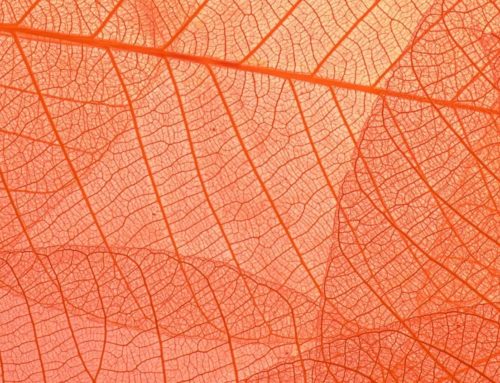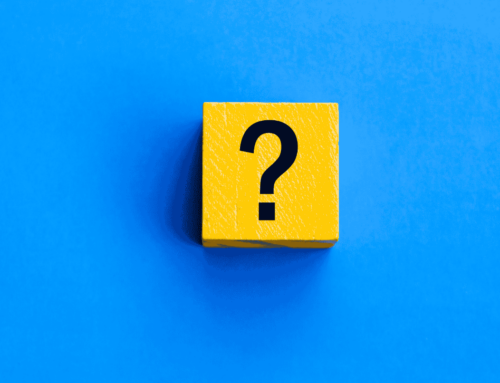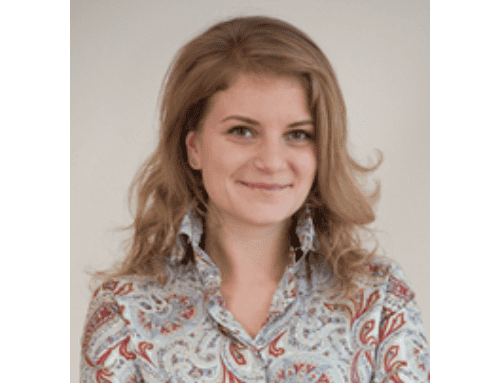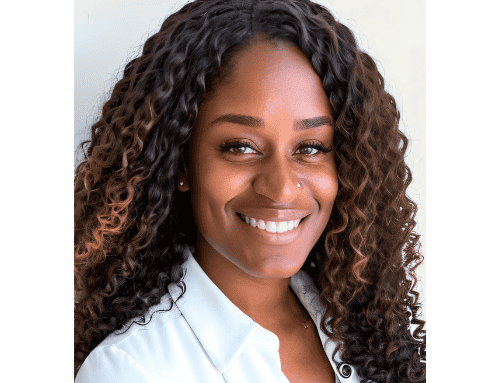With journalists Garvia Bailey, Saba Eitizaz, Christina Frangou, and Salimah Shivji.
Content note: this episode includes discussion of gender-based violence and sexual assault.
It’s 2023 and we’re in Season 5. We start with online harassment and hate faced by women and racialized journalists. We need them to give voice to what’s often left unheard in Canada. This makes the harassment and abuse they experience at disproportionate levels particularly vexing.
It’s harmful to them as people and as media workers, and it runs counter to the goal of making our world better and fairer. We can’t achieve that goal without a diverse news media landscape and truth in reporting.
Online harm and harassment are on the rise globally. We often point fingers across borders, but the Coalition for Women in Journalism says that Canada is the country where the greatest number of women journalists were exposed to organized troll campaigns in 2022. This is gendered violence, and it’s unacceptable. Digital attacks aimed predominantly at women and racialized journalists victimize, belittle and, ultimately, undermine trust in facts and jeopardize press freedom.
We collaborated with the Canadian Journalism Foundation and the #NotOk campaign on a discussion with journalists in December 2022. Today’s episode features a snippet of this conversation, focused on the lived experiences of our panelists. It was moderated by CBC News correspondent, Salimah Shivji. It featured Garvia Bailey, journalist, broadcaster, and co-founder of Media Girlfriends, Christina Frangou, freelance journalist and 2022 winner of the Landsberg Award, and Saba Eitizaz, Toronto Star producer and co-host of This Matters Podcast.
Transcript
00:00:03 Andrea
It’s 2023 and we’re in season five of Alright, Now What?
We start with online harassment and hate faced by women journalists. It’s a significant safety issue and a huge concern for us all.
What’s the experience and what can we do to make change?
00:00:22 Andrea
I’m Andrea Gunraj at the Canadian Women’s Foundation.
Welcome to Alright, Now What?, a podcast from the Canadian Women’s Foundation. We put an intersectional feminist lens on stories that make you wonder “Why is this still happening?” We explore systemic roots and strategies for change that will move us closer to the goal of gender justice.
The work of the Canadian Women’s Foundation and our partners takes place on traditional First Nations, Métis, and Inuit territories. We are grateful for the opportunity to meet and work on this land. However, we recognize that land acknowledgements are not enough. We need to pursue truth, reconciliation, decolonization, and allyship in an ongoing effort to make right with all our relations.
00:01:09 Andrea
I’ve said it before on this podcast.
Equity seeking journalists, including women and racialized reporters, investigate important and hidden stories. We need them to give voice to what’s often left unheard in Canada. This makes the harassment and abuse the experience at disproportionate levels particularly vexing. It’s harmful to them as people and as media workers and it runs counter to the goal of making our world better and fairer. We can’t achieve that goal without a diverse news media landscape and truth in reporting.
Online harm and harassment is on the rise globally, according to a 2021 report by the International Center for Journalists. We often point fingers across borders, but the Coalition for Women in Journalism says that Canada is the country where the greatest number of women journalists were exposed to organized troll campaigns in 2022.
This is gendered violence, and it’s unacceptable.
It’s to our detriment and our shame.
Digital attacks aimed predominantly at women and racialized journalists, victimize, belittle, and ultimately undermine trust in facts and jeopardize press freedom.
We collaborated with the Canadian Journalism Foundation and the #NotOK campaign on a discussion with journalists who shared their insights on the issue. Today’s episode features a snippet of this conversation focused on the lived experience of our panelists.
It was moderated by CBC News correspondent Salimah Shivji. It featured Garvia Bailey journalist, broadcaster and co-founder of Media Girlfriends. It also featured Christina Frangou, freelance journalist and 2022 winner of the Landsberg Award, presented by the Canadian Women’s Foundation and Canadian Journalism Foundation, as well as Saba Eitizaz, Toronto star producer and co-host of This Matters podcast.
Listen, it’s not easy to speak about this stuff. It is not easy to get bombarded by hateful, harassing and violent messages in your work. I know this from experience and I bet many of you listening do too. I am so thankful to our panelists for doing the difficult work of sharing what they go through in the hope that shedding light will lead to real action.
A note about content. This episode includes discussion of gender-based violence and sexual assault.
We start off with Salimah.
00:03:39 Salimah
So, all of us here, myself and the three amazing journalists on the panel-Saba, Christina, Garvia-we’ve all had to handle hate thrown our way simply for doing our jobs. We’ve had to handle that hate to varying degrees and through various means, but it’s certainly not isolated and it’s getting worse. When you hear that more than 72% of journalists say that they were the victim of some form of harassment last year, that’s a pretty alarmingly high figure.
So, we’re going to delve into, I hope, how we cope and some of the solutions that news outlets are thinking of. But I want to start by getting a sense of the type of hate that we’re seeing and the extent of it, sort of the intensity of it in this current climate. So, I want to start with you Saba, if you don’t mind, you’ve spoken out about being targeted about becoming the subject of, you know, a seemingly highly organized hate campaign targeting you and several other journalists in Canada. Can you give us an idea of the type of vitriol that you received and sort of the scale of it and what it was like going through that?
00:04:41 Saba
I usually have started conversations with apologies, which I shouldn’t have to, but I do because trauma strips you of your words and your story, and if there are pauses in what I’m saying, or if I segueway into another part of the conversation, I do apologize for that.
I also want to start with saying that I have forgotten what safe looks and feels like for me.
Which is ironic because I came to Canada to be safe. I have now effectively been the target of hate in two countries.
I was an international journalist in Pakistan, and I have experienced all of what I’m experiencing right now before in the form of a systemic and malicious cyber campaign against me. The violence was because of a, a lot of human rights reporting that I’ve done, which a lot of totalitarian forces in Pakistan and hyper-nationalist forces in Pakistan did not like. That violence eventually, because it carried on with such impunity, trickled into my real life. My car was ambushed, I have been given acid attack threats, I was afraid for my life and eventually had no choice but to come here.
Canada, for a lot of journalists who are in countries where this kind of oppression of freedom of journalism is going on, is supposed to be a haven and a safe space. So, it’s sad to see that we are having this conversation here. It’s sad to see the CFWIJ numbers on online hate in Canada. What I’m getting, I can tell you, that it has nothing to do with my work. It’s not a critique on my reporting. It has everything to do with my gender, my identity, my race and where I’m from.
But the kind of graphic language and threats that are used on my person are almost physical in nature. Everything feels like, every word feels like a slap in the face, and we already know that you know, online violence and online abuse has the same effect on your mental health on, you know, your physical health as actual physical trauma. Threats have gotten worse, they usually happen very well timed on a Friday, so I have a lot of time to think about it over the weekend, when I’m supposed to have my time off.
This year, we got, I got an e-mail which actually mentioned two other journalists, Erica Ifill of The Hill Times and Rachel Gilmore, of Global News and it talked about having our faces on a wall where the group was planning to, was deciding, who to silence, who to retire, and who to rape. And, also told us to quit our journalism or we will be “boogalooed the F out of Canada”, and that’s when we decided that we just can’t keep taking this backlash swinging into our newsroom and individually, you know, trying to deal with this problem. And I think that’s where we kind of led to a collaborative newsroom led effort where we had Global News, Hill Times, and the Toronto Star kind of get together to figure out what needs to be done about this wave of hate.
00:03:58 Salimah
You talked about these encrypted emails and how sophisticated the online attacks have become in a way and I’ll get back to you Saba but I also want to bring in Garvia and Christina into the conversation. When you guys hear that and the extent to which people go to send this hate towards journalists and journalists of color, I guess, how do you explain that? How do you feel about where this is going and what’s fueling this type of hate in this country, in Canada, in particular? Maybe, Garvia, you can take that one first.
00:04:31 Garvia
This is ongoing. It’s something that especially since the birth of social media and it being a part of your job to be on, in those spaces, it sets a chilling effect on anyone. Any woman who feels like they’d like to speak out or have something to say or even in support of the journalists and the women in their circles to say anything, and I think that’s the point of these coordinated attacks is to silence and silence through the means of terror.
If you are able to terrorize enough women, enough journalists into being silent, then that’s a part of the whole, I don’t know what you want to call it, culture war? Or media war or information war? It’s a form of warfare and what I’ve seen and witnessed, and luckily over the last while have not had to experience, but the feeling, the residuals do the same thing. They’re chilling. You don’t want to step too boldly into that public sphere, and that is kind of the point of this sort of coordinated attack.
I see amongst my friends who are all in the journalism and media world, that the conversations that we want to be having publicly, we only have privately. And that’s not what we came into journalism for. We came here to be clarions and to be the ones that people can come to and that we can be here to speak our truth and to speak the truth of whatever’s going on, on the ground, and this is just a great way to silence that.
00:06:19 Christina
Chilling is the right word. It’s just, it’s been shocking to see what has happened and I want to start by, sort of, saying to Saba, Erica and Rachel and everyone who’s been in the crosshairs of these attacks, your work has been tremendous given what you have been under. And I think that needs to be recognized. Like the quality of work that these journalists are doing despite these ongoing attacks that I know keep wearing people down and make it difficult to say anything.
And you know, we watch what’s happening in other countries and people talking about physical attacks on journalists and journalists being put in prison, and more, sort of, organized attacks from the state level to stop the act of journalism. But this is censorship as well. And it’s very hard to speak out, and we did see journalists who spoke out in support of women journalists, journalists of colour. We saw the attacks just grow the number of people that were sort of in their cross hairs and that’s wrong. And I would like to see all of us sort of speaking out and that’s freelancers, that’s newsrooms, that’s people outside the world of journalism to say that this is wrong because this work is really important.
00:07:33 Salimah
You talked about speaking out and the importance of speaking out. But, of course, that is also so difficult when you’re dealing with trauma and when you’re trying to cope, when you’re trying to actually continue doing your jobs and I want to get at that. I want to talk, you know about specific health and news organizations and what managing editors do in a minute, but first I want to just talk personally, you know, Saba, how do you deal with that hate and what are the sort of coping mechanisms that you developed along the way? You talked about joining a little bit with some others who are going through it, how do you develop a path to keep going and to keep doing this job when it gets so difficult and you’re being bombarded with some of that online hate?
00:08:12 Saba
You know, I think journalists are conditioned. It’s our trauma response to keep operating on muscle memory. Everybody has a different coping mechanism and why they continue to do this work. I also know that there are people, journalists in much more perilous job positions than me, who are much more vulnerable- freelancers, people who do not have newsroom led initiatives like supporting them in whatever manner which we should also talk about. nBut, you know, they don’t even have that and they are self-censoring. They are moving away from journalism. They are not there to tell important stories that are part of the Canadian narrative. You already talked about the under-representation in the Canadian media landscape and now there is a concerted effort being made right in front of us to push those really important voices out.
The stories that we tell, the facts that we talk about or disseminate, they matter. They matter more than ever now in this post, it’s not a post pandemic world, but a pandemic world where polarization has led to you know, a global movement of sort of fueling a hyper nationalist or hate filled groups.
It’s not the majority of Canadians, it’s actually specific far right groups that have fueled that confusion. That have fueled that time of disenfranchisement for many to build up on their hate campaigns, to silence and erase people like us. So, I’ve seen the greatest price that can be paid if we stop working at a time like that in Pakistan, there are important voices in journalism have been pushed out, are in exile like me, have been assassinated, have been abducted. When there is an information vacuum, who takes over that vacuum? It’s bad players, it’s people who want to manipulate reality and manipulate the facts to exert more totalitarianism or problematic structures. So, I don’t want that to happen, and also, I refuse to ceded my space. I’ve never ceded my space for you know, to any kind of authoritarianism or bullying. I’m motivated by that, but it’s not really coping, I’m just going on.
When we talk about the trauma from this stuff, it’s not, we always associate it with, like, you know, mental or emotional well-being, but a trauma plays a huge, has a huge impact on your physical being. You know, you burn out, you get sick, you know, there are also intersectional issues here, we talk about journalists, the disproportionality of journalists of colour burning out or quiet quitting or leaving this industry, and it’s all kind of related to that.
00:10:39 Salimah
I want to throw it to you Garvia. How do you sort of cope with where you see this going? You know you’ve worked a long time in this industry. You’ve been with legacy media and worked on your own as well. So, when you see the direction it’s going in, I guess, what are sort of those coping mechanisms that you may use? and I’ll get to you, Christina in a second with a similar question.
00:10:59 Garvia
It’s just so important for us to be able to band together and to find our communities within ourselves, within our groupings of, especially racialized journalists, women of color, or women journalists in general. That has been, for any kind of trauma that I’ve been through, it has been those groups that I can go to. The groups of journalists that have become a part of my social circle, that are integral to my own mental health and so having those supports is just crucial.
Like if you don’t have those supports, please reach out, like reach out to me! Like, I want to be a support to as many as possible. I mean Media Girlfriends was birthed out of that, out of the need for us to come together and be each other’s support.
00:11:58 Salimah
Christina, I want to throw that to you, you work as a freelancer, I mean, how does that sort of inform the jobs you perhaps choose to take or how you weigh situations when you know that sometimes you don’t have a big media organization behind you? And you know, a colleague that you can call and be intimately involved in the story with.
00:12:20 Christina
Well, I will say that I think this has changed the way freelancers talk among themselves and look after each other. And we do have some organized support groups, but we also have very informal sort of groups of friends that look after each other. And I would also say if there’s anybody watching this who is freelancing and who is struggling and is trying to figure out what you say and what you don’t say and how to take on these challenges, please reach out. We have a good group of freelancers in Canada, especially those of us who have been at this a long, long time and we’re gonna keep working to make sure that we’re looking after as many freelancers here as possible.
I’ve been a freelancer for almost 20 years. So, a really long time. When I started the problems you would have is sort of one source or one person that just kept calling you, maybe kept emailing you, and that was kind of it. But now it’s part of your job as a freelancer is also marketing yourself, and it’s commenting on things, it’s like doing the work to make sure that people share your stories, and it means that people learn more about you and they learn more about your networks. I have to be careful about what I say about my family and who I’m connected to and where I might be.
If I am working on a story and I am going into a place by myself, I always make sure that someone knows. I have sort of a system that someone sort of will call after a certain amount of time and check in just to make sure that I’m OK. And I also pick my assignments a little differently. If I think I’m in territory that’s uncomfortable for me in some ways, I make sure I’m working with an editor I know I can trust. And you will learn who those editors are, who stand up for you, who check in with you. I do a lot of writing and stories of people who have just, sort of been through hell and back, like spending a lot of time with people in some of their worst moments. You need to make sure that you have a team around you that that knows how to look after you in that situation.
There’s a lot of political stories I don’t touch because, it’s not to me, worth the risk. That said, you know, I do a lot in sort of vaccinations and gender-based violence and both of these, sort of, open the door to a whole bunch of emails that I really would not like to receive, but that’s the tradeoff I make. I’m constantly talking, though, to other writers and to editors about do you think this risk is worth it? What would you do if this happened? And then when we see someone sort of being slammed online, we tend to, I tend to reach out and, I know that other people do that to me, just to make sure, “Are you OK?”
00:18:44 Andrea
Alright now what?
What you heard is just a slice of what our panelists spoke about. I encourage you to watch the full panel on the Canadian Journalism Foundation’s YouTube channel. The link to the video is in today’s show notes. Our October 5th, 2022 podcast also focused on feminist journalism and it featured past Landsberg award winners, Robyn Doolittle and Christina Frangou. It’s a helpful companion to this panel discussion. It offers practical tips on how we can uplift feminist voices in Canadian media. Please give it a listen too.
And the Landsberg Award is now accepting applications. It celebrates a journalist raising awareness about gender equity and justice issues in Canada, and it seeks to inspire an increase in feminist media coverage and the voices of women in Canada. You can learn more about how to apply at canadianwomen.org. Submissions are due January 20th.
Finally, we’ve got great things in store for this season of Alright, Now What? and great things coming at the Canadian Women’s Foundation. We need people like you with us every step of the way. One of the best ways to stay informed is e-mail. Sign up to our e-mail list now at canadianwomen.org if you haven’t already done so.
Please listen, subscribe, rate and review this podcast and share it with others. If you appreciate this content, if you want to get in on the efforts to build a gender equal Canada, please donate today at canadianwomen.org and consider becoming a monthly donor. And thank you for being tireless in your support for gender justice.






